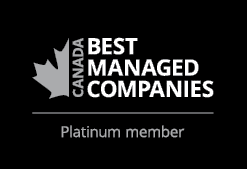Cannabis's popularity is growing, and with it, an interest in the craft market. Since the legalization of cannabis in Canada in 2018, the government has continued to take steps to grow the industry with the introduction of micro-cultivation licenses.
The newest cannabis opportunity
Micro-cultivation, or craft cultivation as it is sometimes called, is a unique opportunity for smaller operations to become involved in the cannabis industry cost-effectively. These new licenses allow for a leaner operation, as smaller cultivators can grow and sell with different operational requirements than a Standard Cultivation license. These regulation changes will help micro-cultivators diversify the industry alongside larger cannabis corporations, similar to what's happening in the craft beer and wine industries.
For small-scale cultivators, the opportunity to contribute to this rapidly growing industry is expected to start a new revolution of cannabis companies by leveraging the demand for more specialized, innovative offerings.
What is micro-cultivation?
Micro-cultivation is the process of growing small-batch cannabis in a limited space. It allows you to focus on achieving the best possible environment for your plants to ensure a high-quality strain better.
With the ability to grow in small batches, there are also many opportunities to differentiate yourself in the market, with unique genetics, limited or seasonal releases, community presence and brand personality.
Protect your cannabis business from unforeseen liabilities with specialized insurance.
Micro-cultivation licenses
For the most part, micro-cultivation licenses are very similar to standard cultivation licenses but with different square footage and security requirements.
Any company that meets the standards outlined in the Cannabis Act is eligible to apply for a micro-cultivation license that allows you to grow cannabis and sell it to licensed third parties. The license will permit a 200 m²/2153-sq-ft growing area, including multiple surfaces. Since a micro-cultivation company will generally have fewer employees, the security requirements for monitoring the cannabis storage areas are slightly reduced.
Under a micro-cultivation license, you would be able to sell cannabis to:
- Licensed third-party wholesalers
- Provincial distributors (fresh/live plant/seeds only)
- Licensed processors (dried flower, oil)
- Licensed retailers
- Medical patients
To acquire a micro-cultivation license, you must draft an application and submit it to Health Canada for review. Extensive details of your facility and operations must be provided, including a professional floor plan, site and physical security design (and risk management programs), standard operating procedures, security clearances, corporate structure summary, site survey, filed notices with local authorities, various quality assurance reports and administrative forms.
After receiving your initial license, Health Canada will inspect the facility regularly to ensure compliance in all areas covered within the Cannabis Regulations. For more information on the specific application requirements, you can visit the Government of Canada website.
Micro-cultivation and insurance
Insuring requirements for your micro-cultivation business can vary depending on your jurisdiction's specific regulations and laws and numerous other variables, including risk management, compliance, product liability, crop protection, and your need to demonstrate financial responsibility.
At Cowan, our expert brokers understand the cannabis industry and offer one of the most comprehensive insurance packages in the market. Contact us today to learn more about how we can help protect your business.

-min.jpg?width=400&name=MFA_Blog%20(1)-min.jpg)
-min.jpg?width=400&name=AJ%20Feltis%20(1)-min.jpg)
-min.jpg?width=400&name=Healthy_Workplace_Blog%20(1)-min.jpg)

